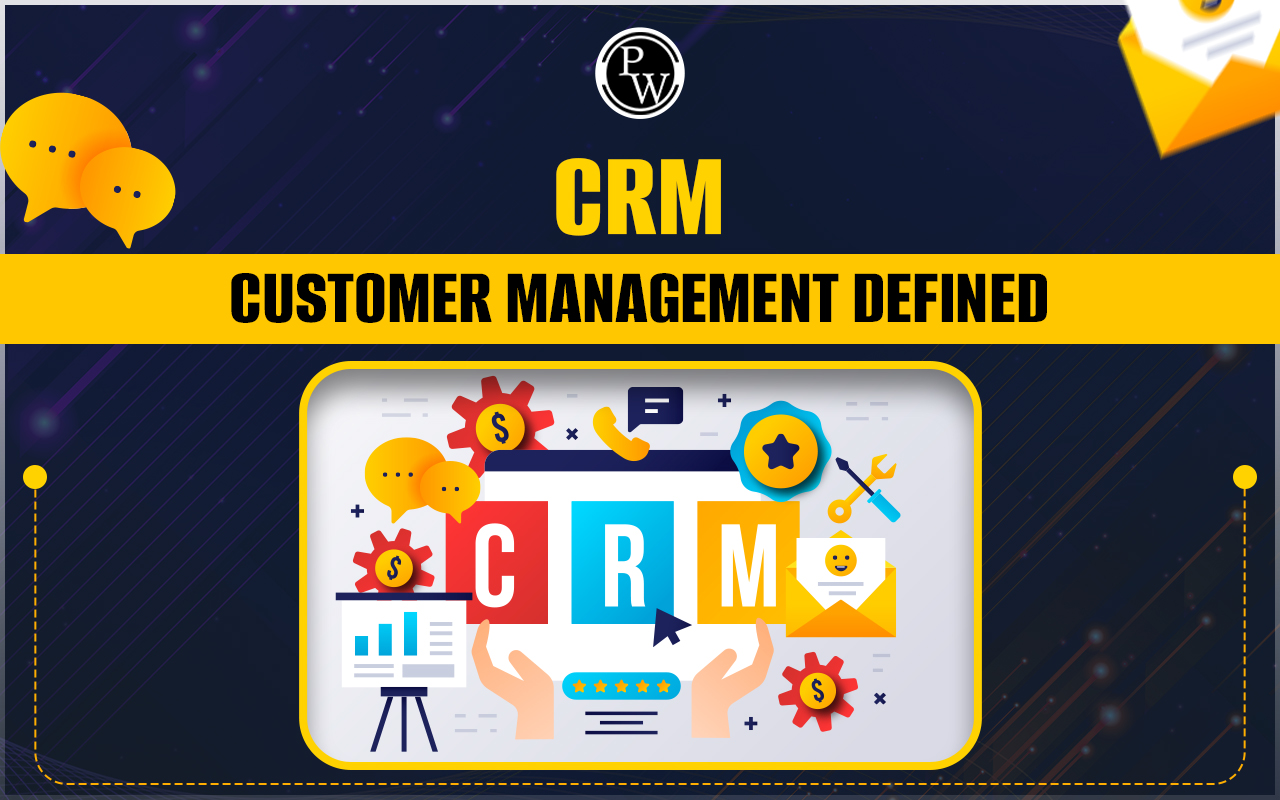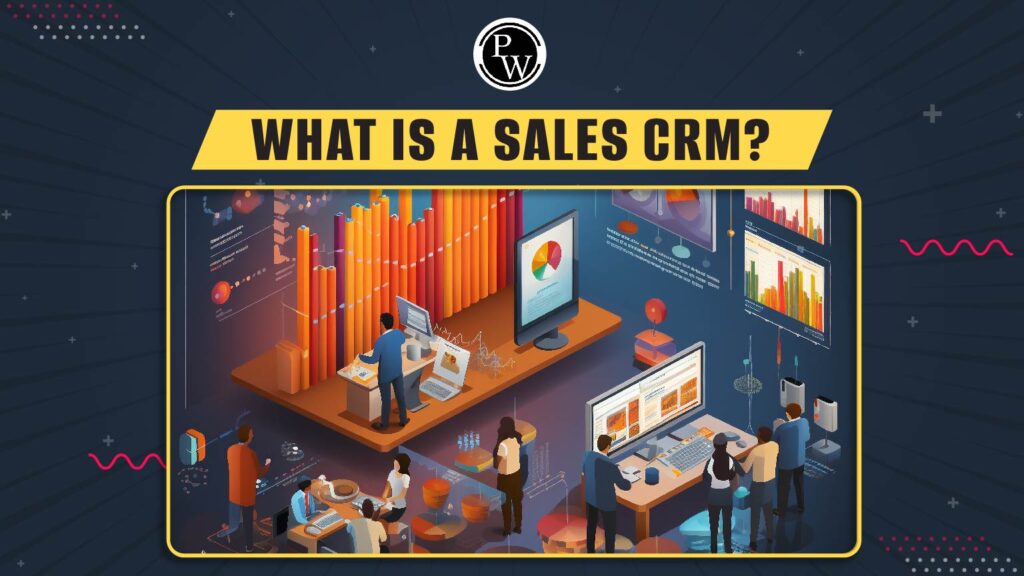Client Relationships and retention goals for a business can easily be achieved using CRM software. It stands for Client/Customer Relationship Management. Many businesses use various strategies and methods to keep their clients interested in their products and services and to increase their brand reputation and loyalty among clients.
CRM software tools come in handy while taking regular follow-ups, broadcasting messages, providing and collecting feedback, and more. Nearly all major businesses implement this system to maintain a good client relationship. The CRM explanation in this article defines the crucial benefits of the tool for building a strong relationship with your client.
CRM Explanation Overview
CRM stands for Customer Relationship Management. This is a strategy and set of technologies companies use to manage and analyze customer interactions and data throughout the customer lifecycle. The goal of the CRM is to improve business relationships with customers, assist in customer retention, and drive sales growth.
CRM systems are vital tools for managing a company’s interactions with current and potential customers, helping businesses build stronger relationships, improve customer satisfaction, and drive growth.
Benefits of Client Relationship Management (CRM)
There are various benefits of CRM that can significantly benefit businesses of all sizes. CRM systems provide a comprehensive framework for managing customer interactions, enhancing customer satisfaction, driving sales growth, and improving overall business efficiency.
The advantages of CRM make CRM an essential tool for businesses aiming to build lasting customer relationships and achieve long-term success.
CRM explanation is given below to give crucial insights regarding the benefits of CRM software:
1. Improved Customer Relationships:
Customer relationship management systems centralize customer data, allowing businesses to tailor communications and interactions based on individual customer preferences and histories, giving them the personalized interaction option. Also, quick access to comprehensive customer information helps service representatives resolve issues more efficiently and provide better support.
2. Increased Sales and Revenue
Customer relationship management tools streamline sales processes, making it easier for sales teams to track leads, follow up on opportunities, and close deals. The CRM system also provides insights into sales trends and forecasts, helping businesses plan more effectively and set realistic sales targets.
3. Enhanced Marketing Efforts
Customer relationship management (CRM) data allows for the segmentation of customers based on demographics, behavior, and purchase history, enabling more targeted and effective marketing campaigns. Also, automate and track the performance of marketing campaigns, ensuring better resource allocation and improved ROI.
4. Improved Customer Retention
CRM systems help businesses identify at-risk customers and implement strategies to retain them, such as personalized offers and proactive support. Also, CRM collects and analyzes customer feedback to continuously improve products and services, fostering loyalty.
5. Enhanced Collaboration and Efficiency
CRM systems provide a single source of truth for customer information, accessible to all relevant departments, which improves collaboration and coordination. Also, the automation workflow and CRM systems automate repetitive tasks such as data entry, follow-up emails, and more to focus on more strategic activities.
6. Better Decision-Making
CRM systems offer powerful analytics and reporting tools that provide insights into customer behavior, sales trends, and marketing effectiveness. By Understanding customer needs and market trends, businesses can make informed decisions about product development, market expansion, and resource allocation.
7. Scalability and Growth
Many CRM systems are designed to grow with business, offering flexible plans and features that can be expanded as needed. The effective use of CRM tools can differentiate a business from competitors by offering superior customer service and personalized experience.
8. Cost Savings
Automation and streamlined processes reduce the need for manual intervention which leads to lower operational costs. Also, by improving customer retention and loyalty, businesses can spend less on acquiring new customers.
9. Compliance and Data Security
CRM systems help businesses comply with data protection regulations by managing customer data securely and providing audit trails. Also, CRM protects sensitive customer information with robust security measures integrated into CRM platforms.
10. Improved Customer Experience
CRM systems maintain a consistent tone and message across all customer touchpoints, ensuring a seamless customer experience. Also, CRM systems often include features like chatbots and self-service portals, supporting customers at any time.
CRM Explanation: Types of CRM Systems
Customer Relationship Management (CRM) systems come in various types, each designed to address specific business needs and objectives. The three main types of CRM systems are Operational CRM, Analytical CRM, and Collaborative CRM. Check for the CRM explanation for each type.
1. Operational CRM
- Focus on automating and improving customer-facing business processes such as sales, marketing, and customer service.
- The operational CRM improves efficiency and productivity in sales, marketing, and customer service.
- The operational CRM enhances customer satisfaction by providing timely and accurate responses.
- Operation CRM facilitates better management of customer interactions throughout the customer lifecycle.
2. Analytical CRM
- It involves analyzing customer data to enhance strategic decision-making, understanding customer behavior, and predicting future trends.
- Gives a better grasp of customer behavior and preferences.
- Helps in making data-driven decisions to improve marketing, sales, and customer service strategies.
- Identifies opportunities for upselling, cross-selling, and personalized marketing.
3. Collaborative CRM
- Facilitates communication and collaboration among various departments and between the company and its customers.
- Improves internal communication and teamwork by providing a unified view of customer interactions.
- Enhances customer experience through consistent and coordinated communication.
- Facilitates better customer service by enabling departments to share information and collaborate effectively.
CRM Explanation Popular CRM Softwares
There are several popular CRM software solutions available, each offering a variety of features to cater to different business needs. Some of the best or most widely used CRM software options are:
1. SalesForce: SalesForce is one of the most well-known and widely used CRM platforms, offering a comprehensive suite of tools for sales, customer service, marketing, and more.
Key Features:
- Sales Cloud for managing sales processes
- Service Cloud for customer support
- Marketing Cloud for marketing automation
- Analytics and reporting tools
- Customization and integration capabilities
2. HubSpot CRM: HubSpot CRM is a popular choice for small to mid-sized businesses, offering a free version with essential CRM features and paid versions with advanced functionalities.
Key Features:
- Contact and lead management
- Email tracking and engagement
- Marketing automation
- Sales pipeline management
- Reporting and analytics
3. Zoho CRM: Zoho CRM offers a wide range of features at an affordable price, making it suitable for businesses of all sizes.
Key Features:
- Lead and contact management
- Sales automation and forecasting
- Marketing automation
- Customer Support and service management
- Integration with further Zoho products and third-party applications.
4. Microsoft Dynamics 365: Microsoft Dynamics 365 combines CRM and ERP capabilities to offer robust solutions for managing business processes across various functions.
Key Features:
- Sales and Marketing automation
- Customer Service Management
- Field Service Management
- Finance and operations management
- Integration of Microsoft Office with other Microsoft products.
5. Pipedrive: Pipedrive is a sales-focused CRM designed to help sales teams manage their pipelines and close deals effectively.
Key Features:
- Visual sales pipeline
- Activity and goal tracking
- Email integration and automation
- Reporting and analytics
- Integration with third-party apps
Learn Sales and Relationship Management with PW Skills
Join our upskilling program and learn effective sales and relationship management techniques with our Sales and Relationship Management Course. The course is aligned with the latest career-centric needs of companies and advanced tools. Engage in smart learning with pwskills.com.
CRM Explanation FAQs
Q1. What does CRM mean for marketers?
Ans. For marketers, CRM is a powerful tool that significantly enhances their ability to manage and optimize interactions with both current and potential customers. A detailed analysis of CRM is mentioned above in the article.
Q2. What is a CRM system?
Ans. CRM systems are essential tools for managing customer relationships and improving business operations. CRM systems provide comprehensive solutions to meet the diverse needs of businesses across industries.
Q3. What are the benefits of CRM?
Ans. CRM provides a comprehensive framework for managing customer interactions, enhancing customer satisfaction, driving sales growth, and improving overall business efficiency. A detailed analysis of the benefits of CRM is mentioned above in the article.
Q4. Why do we need CRM?
Ans: CRM solutions can track strong clients within a business and allow them to maintain personalized communication with clients. It is beneficial for brands to increase their brand awareness, value, and loyalty of clients.







